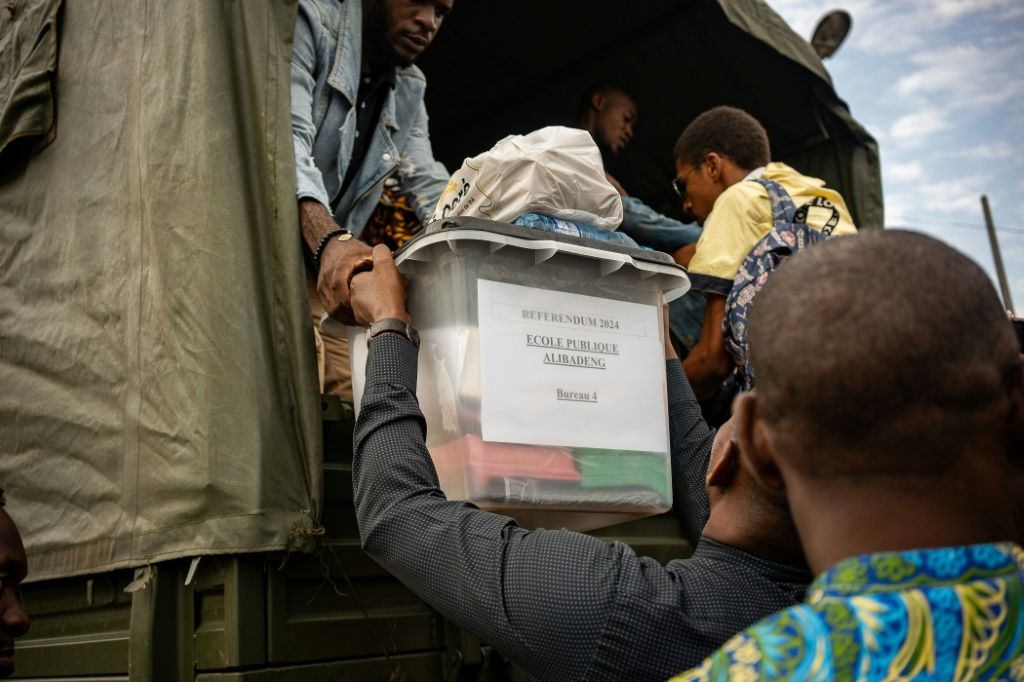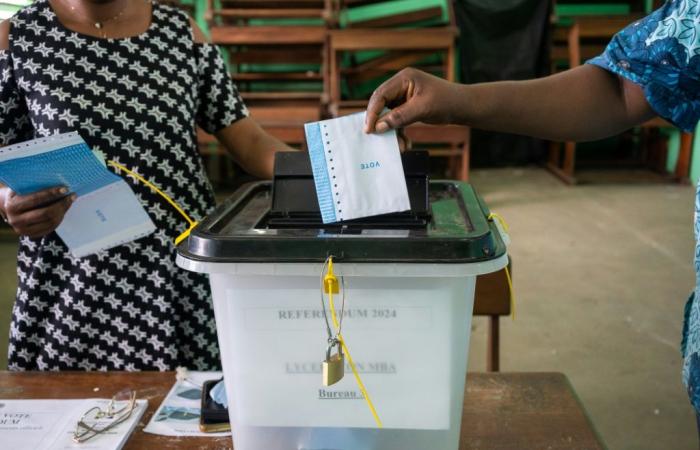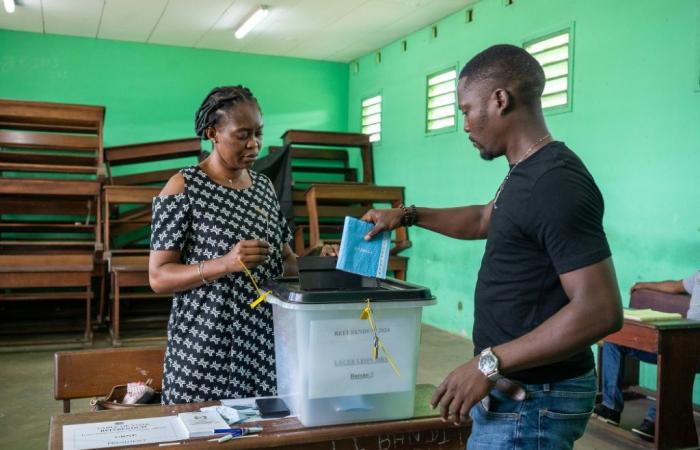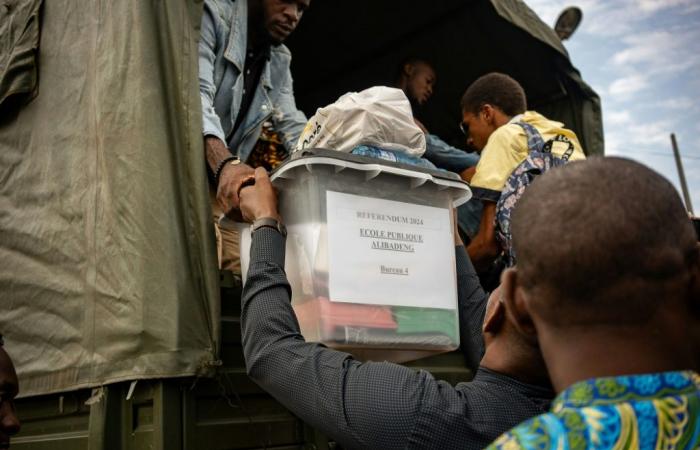The Gabonese people voted on Saturday November 16, 2024 on the new Constitution written by the military regime of General Brice Oligui Nguema, with a participation rate of “more than 70%” for this “historic day”, according to figures given by Public Television Gabon 24.
'The participation rate communicated by the Ministry of the Interior exceeds 71%', and 'yes' comes very far in the lead in several offices abroad, according to Gabon 24 which dedicated a special program to this 'D-Day' ' where 'Gabon writes a new page in its history'. Opened at 7:00 a.m., sometimes with delays, the polling stations closed at 6:00 p.m. before the votes were counted and the results transmitted to the Ministry of the Interior. At the Leon Mba high school, in the center of Libreville, the public, with two foreign observers and AFP journalists, was allowed to watch the counting operations through a window, from outside the office, before the ballots are not burned in the courtyard.
The 250 observers of the ROC citizen network were authorized in certain offices but refused in others, a spokesperson for this network financed by the United Nations told AFP. If the Constitution is adopted, the next step will be the holding of a presidential election, currently scheduled for August 2025, to put a definitive end to the Transition born from the putsch of August 30, 2023, after the fall of the Bongo dynasty. General Oligui Nguema has promised to return power to civilians, but he does not hide his presidential ambitions by also promising 'a rise to happiness' for this country which is both rich in oil and heavily in debt.
'All Gabonese come to vote in transparency (….) this is a huge step forward for the Transition,' declared the President of the Transition, after voting in an office in the center of Libreville. So that 'the vote takes place in a climate of tranquility and peace', the authorities have reinforced the curfew put in place since the putsch. 'The curfew hours are rearranged from 24 p.m. to 5 a.m. throughout the period of the electoral process' – two hours earlier than the current curfew which begins at 2 a.m. -, according to a decree read on public television.
– ” Trust ” –
No major incident was reported during the day, according to Gabon 24 which reports data not available on the regime's official websites. 'We trust, and it's a test,' said Mathurin Bengone, a 45-year-old civil servant from the Ministry of Health met in an office in Libreville. 'If our vote is not respected, we will no longer vote. We will do as in the years before, abstention will increase,' he told AFP, after putting his ballot in the box.
'We want to make sure that 'yes' is 'yes' and 'no' is 'no', not like in the past. We have recorded too many cases of fraud, echoed Dikegue Jean Icaise, a 51-year-old restaurateur who came in the evening to 'ensure the transparency' of the counting operations at the Lycée Léon Mba. Dominated by official propaganda, the campaign was marked by lively debates. Opponents of the text denounce a text tailor-made for the new strong man in power, its supporters say that we must move forward by voting +yes+.
– “Fall into line” –
'The 'no' supporters will have to fall into line,' said the 'Gabon 24' commentator during the special broadcast. The draft new fundamental law establishes, among other things, a seven-year mandate renewable only once, with a presidential system with strong executive power, without Prime Minister but with a Vice-President appointed by the Head of State, and a power of dissolution of the National Assembly. The text requires the presidential candidate to be exclusively Gabonese, born to at least one Gabonese parent by birth and married to a Gabonese person. A paragraph not included in the list of intangible provisions prohibits the spouse or descendants of the President from running for office.
The Interior Ministry promised to publish the provisional results 'as quickly as possible', without specifying a date or time. The final results must be announced by the Constitutional Court 'after all disputes have been lifted'.

© Afriquinfos & Agence France-Presse








